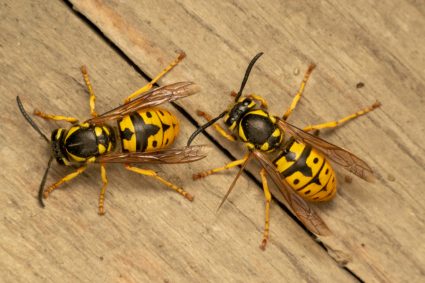
Skunks are known for their distinctive smell and their ability to spray when threatened. But beyond their pungent odor, skunks can also carry several diseases that can pose a threat to humans, pets, and other animals. This article will delve into the various diseases skunks carry, the signs of a diseased skunk, how these diseases can be transmitted, their potential health effects, and preventative measures to reduce the risk of infection.
Skunks can carry several diseases that can pose a threat to humans, pets, and other animals. The most common diseases include rabies, leptospirosis, distemper, intestinal roundworms, and canine hepatitis. These diseases can be transmitted through bites, scratches, or contact with the skunk’s urine or feces. It’s essential to avoid close contact with skunks to minimize the risk of contracting these diseases.
Common Diseases Carried by Skunks
1. Rabies
Skunks are among the primary carriers of rabies in the United States. Rabies is a viral disease that affects the central nervous system and can be fatal if not treated promptly. It is transmitted to humans or pets through bites or scratches that contain infected saliva.
2. Leptospirosis
This bacterial infection can spread from skunks to other mammals, including humans. People can contract leptospirosis through contact with infected animal urine in water, soil, or food.
3. Distemper
While distemper does not infect humans, it can be passed on to dogs, cats, and other domestic pets and wild animals. It is usually transmitted through contact with urine.
4. Intestinal Roundworms
Skunks can carry intestinal roundworms, which can be transmitted to other animals. Roundworms can cause various health issues in humans and pets, depending on the specific type of roundworm involved.
5. Canine Hepatitis
Skunks can carry canine hepatitis, a viral disease that can affect dogs. It can be transmitted through contact with infected urine or feces.
Signs of a Diseased Skunk
Recognizing the signs of a diseased skunk is crucial for avoiding potential exposure to these diseases. Some of the symptoms include flu-like conditions, discoloration on the coat, strange body odor, wounds or missing fur, high fever, diarrhea, weight loss, and seizures.
Transmission of Diseases
Skunks can transmit diseases to humans and pets through various means, including bites, scratches, urine, and feces. It is essential to avoid close contact with these animals and their bodily fluids to minimize the risk of contracting these diseases.
Health Effects on Humans and Pets
The diseases carried by skunks can have severe health effects on humans and pets. Rabies, for instance, can cause fever, headache, weakness, and discomfort, progressing to symptoms like insomnia, anxiety, confusion, and even death. Leptospirosis can lead to high fever, headache, chills, muscle aches, and vomiting, and if left untreated, can cause kidney damage, meningitis, liver failure, and respiratory distress.
Preventative Measures
To reduce the risk of infection, practice good hygiene, cover your cough or sneeze, clean and disinfect frequently touched surfaces, and handle animals with care. Ensure your pets are vaccinated and receive regular check-ups.
Handling an Encounter with a Skunk
If you encounter a skunk, remain calm, keep your distance, avoid sudden movements, and restrict access to food and shelter on your property. If you or your pet gets sprayed, use a homemade de-skunking solution made of 1 quart of 3% hydrogen peroxide, ¼ cup of baking soda, and 1-2 teaspoons of liquid dish soap.
Conclusion
Skunks, while not typically aggressive, can carry several diseases that pose risks to humans and pets. Understanding these diseases, their symptoms, and how they are transmitted is crucial for preventing infection. By practicing good hygiene, maintaining proper sanitation, and keeping a safe distance from these animals, we can minimize these risks and coexist peacefully with these unique creatures.
Frequently Asked Questions
What is the incubation period for rabies in skunks?
The incubation period for rabies in skunks can vary, typically ranging from two weeks to several months. However, it’s important to note that an infected skunk can transmit the virus before showing any signs of illness.
Are there any specific signs of rabies in skunks?
Yes, there are specific signs of rabies in skunks. These may include aggressive behavior, disorientation, excessive drooling, difficulty walking, and even paralysis.
How can I protect my pets from leptospirosis?
The best way to protect your pets from leptospirosis is through vaccination. Regularly cleaning your pet’s environment and preventing them from drinking or playing in stagnant water can also help reduce the risk.
How are intestinal roundworms diagnosed in humans and pets?
Intestinal roundworms are typically diagnosed through a fecal exam. Your doctor or veterinarian will examine a sample of feces under a microscope to look for the presence of eggs or larvae.
What should I do if I suspect a skunk on my property is diseased?
If you suspect a skunk on your property is diseased, do not attempt to handle or remove the animal yourself. Instead, contact your local animal control or wildlife removal service for assistance.












